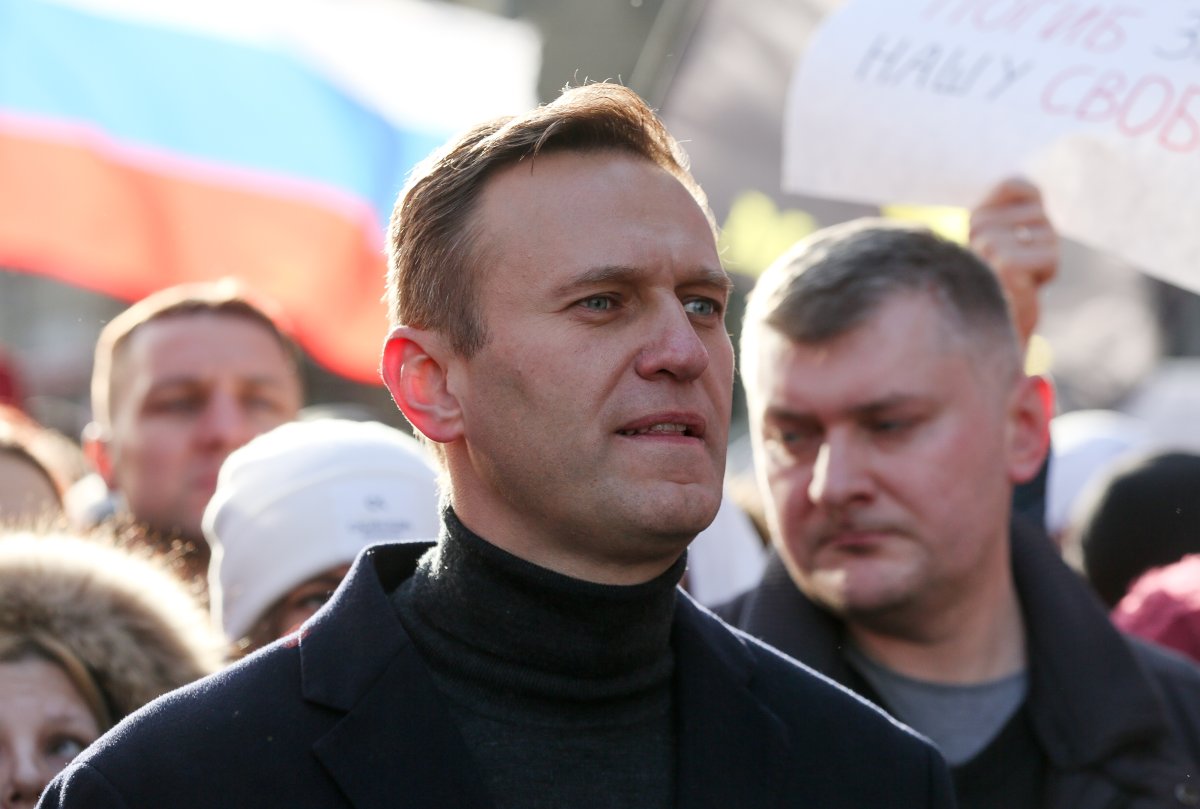Russian opposition leader Alexei Navalny, who has been in prison since 2021, is sick with severe stomach pain that may be caused by a slow-acting poison, his spokesperson said on Thursday.

Kira Yarmysh, a representative of Navalny, told Reuters an ambulance was called on April 7 to the Russian maximum-security IK-6 penal colony where he is being held. Navalny reportedly received no diagnosis.
Navalny, 46, was experiencing intense pain and could not eat the prison food as a result. Yarmysh said he has been banned from buying alternative food since Monday, and he is not allowed to receive parcels containing food.
Anna Veduta, a Washington, D.C.-based vice president of Navalny’s Anti-Corruption Foundation, told the Associated Press Navalny first became ill earlier on Friday when he was released from a punishment cell and put in a conventional cell.
Veduta said Navalny has lost 18 pounds over the last 15 days. She told the Associated Press that his allies believe he is “slowly being administered low doses of poison” from unidentified pills he is being given in prison.
The Kremlin has refused to comment on Navalny’s health or alleged poisoning. The authority said prisoner health falls under the domain of the federal penitentiary service. In the past, the penitentiary service has claimed Navalny has always received adequate medical treatment.
Ruslan Shaveddinov, a close ally of Navalny’s, told The Guardian the politician’s situation is “critical.” He said prison authorities refused to admit Navalny to hospital.
Shaveddinov said the prison authorities are trying to “break” him.
Navalny is currently serving an 11-and-a-half-year prison sentence for charges of fraud and contempt of court. He has said he believes the sentence is an attempt by the Kremlin to silence him over his career of fighting official corruption in Russia.
On Tuesday, Navalny’s social media account, run by his allies, tweeted that he was released from “shizo,” or a solitary confinement punishment cell, on the evening of April 7. He was sentenced to another 15 days inside shizo on Monday, as per Navalny’s Twitter account. Amid a thread about corruption within prison purchasing practices, Navalny called his conditions “extremely hellish.”
Navalny has been poisoned in the past. During a trip to Siberia in 2020, Navalny was poisoned with Novichok, a Soviet-era nerve agent. He blames Russian President Vladimir Putin and the Kremlin for the poisoning. After a five-month recuperation in Germany, Navalny returned to Moscow in 2021, where he was taken into custody. The Kremlin denied ever poisoning Navalny.
German government spokesperson Christiane Hoffmann said Wednesday that Germany took note of reports about Navalny’s worsening health “with great concern.” She added that Berlin wants “the inhuman treatment that he is apparently suffering in prison to be lifted,” and wants Russian authorities to ensure he gets access to medical treatment and is released.
A documentary about Navalny won an Oscar last month. The film documents Navalny’s life and career, from when he was a lawyer who publicly criticized Putin and the Kremlin for mass corruption, to his eventual prison sentence.
— With files from the Associated Press







Comments